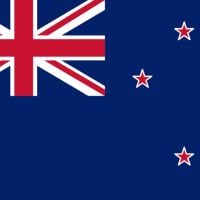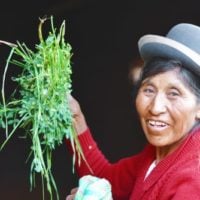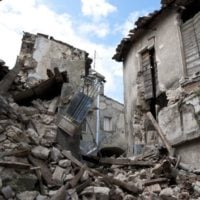View other Latest Grants by signing into your Premium Membership account. Not a Premium Member? Sign up here!
Organizations, including NGOs, universities, communities, partnerships, cooperatives, governments and companies have been invited to apply for the Food System Vision Prize: Envisioning Regenerative and Nourishing Food Futures for 2050.
Deadline: 5 December 2019
The Rockefeller Foundation has partnered with SecondMuse and OpenIDEO to amplify the discourse on the state and the future of the world’s many food systems. And to empower communities globally to develop actionable solutions and become protagonists in their own food future. Creating a compelling and progressive Vision for the future of our food system requires a culture of collaboration that rallies industry, policy, academia, and society to act as one. When we come together, we can deliver sustainable, nourishing diets for people and the planet by 2050.
The Rockefeller Foundation, the Sponsor of the Program, is a private foundation located in New York, New York that advances ideas to improve the well-being of humanity around the world. IDEO LP and SecondMuse LLC are administrators/organizers of the Program. The Sponsor and the administrators/organizers collectively shall be referred to in these Prize Terms and Conditions as “Program Entities.”
The challenges seem ominous: a global population approaching 10 billion, greenhouse gasses changing their climate, pollution poisoning their soil, air, and water. Yet, there are opportunities to address them if they act together to transform their food system.
Benefits
- $2M will be distributed to the Top Visionaries, who will be eligible to receive a prize of $200,000 each.
- The Finalists, who will be selected after a Refinement Phase that extends from 2 March – 17 April 2020, will also:
- Join a cohort of Visionaries addressing systemic food issues via a virtual Accelerator and in-person convening;
- Collaborate with a select team of advisors and stakeholders to further refine their Visions and find pathways to actualize them;
- Participate in an Accelerator during which they will have access to media and storytelling training and a global platform via media exposure, in order to attract partners, connections, and other funder and philanthropic networks;
- Refine and amplify their Visions further;
- If in full compliance with the Prize Terms and Conditions, be announced as a Top Visionary and have the opportunity to participate in a recognition ceremony.
Eligibility Criteria
- The Program is open to legally registered and organized entities, including organizations, universities, governments, NGOs, cooperatives, partnerships and companies that agree to be and can be legally bound by these Prize Terms and Conditions.
- Existing or recent agents, affiliates and representatives of the Program Entities and any organization, university, government, NGO, cooperative, partnership or company, whose laws, guidelines, policies or regulations do not allow for entry in the Program or acceptance of the Prize consistent with the Prize Terms and Conditions, are not eligible for entry.
- Further, any limited liability partnership or limited liability company consisting of, or formed solely for the benefit of, a single individual is not eligible for entry. Individuals cannot enter the Program.
- Food System Vision Prize “Strategic Network Partners” are also not eligible for entry.
- Entrants that Sponsor believes in its sole discretion will not or cannot fully represent Sponsor’s charitable mission and/or its core values are not eligible for entry.
- The Program expressly excludes entrants from any country, and entities or persons, appearing on the list provided by the United States Treasury Department, Office of Foreign Asset Control (“OFAC”), whether, currently listed there, or subsequently listed at any time during the Program’s duration.
- At each phase of the Program, Program Entities reserve the right in their full discretion to verify the eligibility of any entrant, potential semi-finalist, potential Finalist or winner (“Top Visionary”) and its compliance in full with these Prize Terms and Conditions.
- Each entry must designate one individual, who is legally authorized to bind the Legally Registered Entity in connection with, and for purposes of, any aspect of this Program. This individual at the time of entry must be over the age of majority in the relevant jurisdiction(s) in which the Legally Registered Entity is organized and legally resides, and where the individual legally resides.
Criterion #1 Systems Focused
Visions that are infused with a systemsfocused approach will illustrate how food system Themes—Economics, Diet, Technology, Policy, Culture, Environment—are interconnected and influence one another within the specific system described.
- Does the Vision address the Themes in an integrated way?
- Does the Vision demonstrate how the Themes connect and interrelate?
- Does the Vision employ Systems Thinking?
Criterion #2 Transformative Potential
Visions with the potential to positively shift the food system in the chosen Place. A Vision with transformative potential is gamechanging (meaning it changes the structure, norms, standards of today). It takes us out of the current state and launches us into a new reality. It forces us to anticipate what could go wrong and plan appropriate responses.
- Is this Vision game-changing?
- Does the Vision point toward specific innovations that will need to occur? Innovation may be in science, technology, policy, movement building, or other culture-enhancing elements.
- Does the Vision paint a different, transformative, picture of the future?
Criterion #3 Community Informed
Community-informed Visions are focused on the uniqueness of a particular Place. They show a deep level of understanding of both the Place (natural characteristics) and its People (the communities within the place). To be community-informed means to demonstrate knowledge of the challenges that face an area and its diverse food system participants (stakeholders) and to propose a hopeful future that addresses these challenges.
- Does the Vision connect to the needs and experiences of the People within the Place?
- Is the Vision inclusive of local community members representing a diversity of experience, cultural traditions, beliefs, urban/rural breakdown, ethnic diversity, etc?
- Were food system stakeholders considered during the development of the Vision?
Criterion #4 Inspiring
An inspiring Vision has the potential to ignite a movement. It leverages compelling storytelling to mobilize diverse stakeholders to rally and unite behind it. It inspires others to think, connect, and act.
- Does the Vision have the inspirational power to rally and unite people around it?
- Is the Vision compelling enough that investors, policy makers, inventors, and cultural influencers would take note?
Criterion #5 Feasible
(used in the second round of scoring only)
Bold, feasible Visions include an articulation of the concrete and actionable solutions that will be needed to make the vision a reality by 2050 in a particular Place. They are informed by quantitative and qualitative data, grounded in future trends, projections, and local insights. And they describe a credible pathway for realization in the future.
- Is the Vision grounded in quantitative and qualitative data, whether present-day or future-focused?
- Is the Vision technically viable? Have aspects of the Vision already been validated? Has the team identified concrete and actionable solutions?
- Does the team indicate a credible pathway toward making the Vision a reality by the year 2050?
Criterion #6 Community Co-Created
(used in the second round of scoring only)
In the second phase, Community Co-created Visions are informed, developed, and cocreated through consulting with a number of sectors and people representing different areas of expertise and demographic groups.
Visionaries are encouraged to engage multiple stakeholders (e.g., farmers, businesses, researchers, policymakers, food service workers, etc.) and collaborate with them to integrate their views and perspectives into the Vision. Additional consideration will be given to Visions that represent a minimum of 2 or more different stakeholders with deep knowledge of and familiarity with the selected Place (e.g., a research institute together with a farmer business organization and a city’s food policy advisory group).
- Is the Vision developed with input from those with unique backgrounds, areas of expertise, priorities, and experience?
- How many different stakeholders’ input are represented in the Vision?
- Did the team consult and consider input from diverse stakeholders?
The Process
Prize Participants may submit their Visions at any point during the Open Submission Phase and are encouraged to publish an initial post of their submission by the Early Submission Deadline on 5 December 2019. Participants who publish their submission by this deadline will have the opportunity to attend an invitation-only webinar with members of The Rockefeller Foundation’s Food team, the Sponsors of this Prize. No preference will be given to participants who submit early; however participants who do may benefit from the opportunity to connect with other participants, seek feedback on their submission, and engage with the OpenIDEO community team. All published submissions may be updated until 31 January 2020.
After the initial Open Submission Phase, Semi-finalists will advance to the Refinement Phase, where participants will be expected to (a) further develop and update their Vision statements, (b) respond to new application prompts on the Prize platform, and (c) include feasibility and data considerations in a further advanced submission.
In May 2020, up to 10 Finalists will progress to the Accelerator. The virtual Accelerator focuses on supporting Vision teams to continue on their path toward implementation and impact. The Accelerator will include mentorship, cohort-based learning, and one in-person workshop with advisors. During this phase, Visionaries will make further refinements to their Vision.
Top Visionaries will be announced on 13 September 2020 after confirmation of eligibility and adherence to the Prize Terms and Conditions. Prize funding will be released to teams that meet all requirements set out in the Prize Terms and Conditions, including the execution of any Affidavit requested by The Rockefeller Foundation.
Core Beliefs
The following statements underpin the understanding of food system transformation and will guide the Food System Vision Prize:
1. We see the world through the lens of a multitude of interconnected food systems.
2. We believe that food connects us to our communities, institutions, culture, personal
identities, and each other.
3. We believe a positive future requires honoring food traditions while also developing
new ways of thinking and working.
4. We believe that transforming food systems requires diversity of thought, perspectives, and solutions.
5. We believe food systems should contribute to protecting and regenerating the environment.
6. We believe food systems should support the health, wellness, and nourishment of our bodies, souls, and communities.
7. We believe in the sensorial power of food to ignite creativity and spark joy for all.
Fort more information, visit https://www.foodsystemvisionprize.org/







































